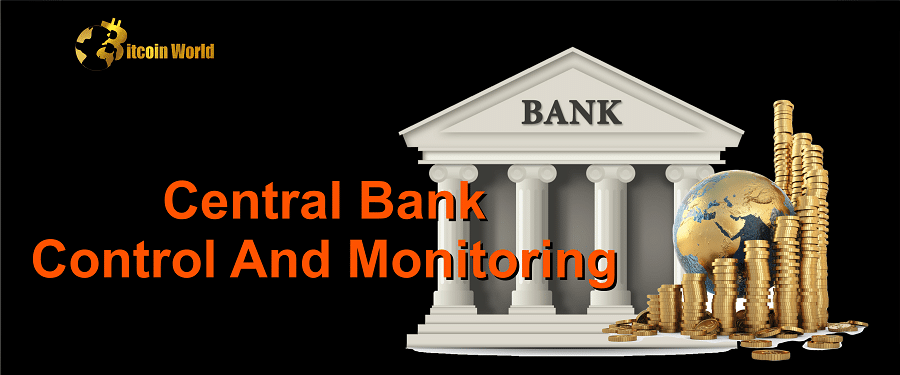Is the Wild West era of cryptocurrency coming to an end in South Korea? The Bank of Korea (BOK) is stepping up, advocating for new, robust legislation to bring the burgeoning world of virtual assets under control. Why the urgency? Let’s dive into the key reasons behind the BOK’s push for crypto regulation and what it could mean for the future of digital currencies.
Why Now? BOK Highlights the Need for Specific Crypto Laws
Forget trying to fit a square peg into a round hole. The Bank of Korea believes that cryptocurrencies, with their unique market dynamics and operational structures, simply can’t be effectively governed by existing financial regulations designed for traditional stocks and currencies. Think about it – Bitcoin and Ethereum aren’t your average stocks, and stablecoins aren’t your typical fiat currency.
In a recently released study titled “Key Issues and Legislative Directions Relevant to Crypto Asset Regulation,” the BOK laid out its case for dedicated crypto legislation. This report, aimed at sparking debate among lawmakers, government bodies, academics, and industry experts, underscores a critical point: cryptocurrencies need their own rulebook.
Key Areas of Focus for Crypto Regulation
So, what exactly does the Bank of Korea propose? Their recommendations cover a wide range of crucial aspects of the crypto ecosystem. Here’s a breakdown:
- Exchange Registration & Oversight: The BOK wants cryptocurrency exchanges to be formally registered as stock companies. This move signals a push for greater accountability and transparency within the exchange landscape. Imagine crypto exchanges operating under similar scrutiny as traditional stock exchanges – that’s the direction the BOK is suggesting.
- Capital Requirements & Audits: To ensure stability and protect investors, the BOK is advocating for capital restrictions and mandatory external audits for crypto exchanges. This is all about building a more secure and trustworthy environment for crypto trading.
- Initial Exchange Offerings (IEOs): Remember the ICO craze? The BOK is proposing a more controlled approach with IEOs. This would involve cryptocurrency exchanges vetting and approving new crypto asset issuances before they hit the market, acting as gatekeepers to filter out potentially risky projects.
- Investor Protection & Fair Trading: The BOK emphasizes the need to clearly define liabilities for non-disclosure and crack down on unfair trading practices. Insider trading, market manipulation, and fraudulent activities should have no place in the crypto world, and the BOK wants regulations to reflect this.
- Platform Rules & Internal Controls: Think of it as best practices for crypto businesses. The BOK suggests mandatory trading platform rules to prevent conflicts of interest and the establishment of robust internal control mechanisms. This includes crucial aspects like client asset segregation, reserve asset management, and restrictions on exchange operations to ensure fair and ethical practices.
Stablecoins: A Special Case for Regulation
Stablecoins, cryptocurrencies designed to maintain a stable value (often pegged to fiat currencies like the US dollar or Korean Won), are getting particular attention from the Bank of Korea. Why? Because of their potential for widespread use in payments and settlements.
The BOK believes that stablecoin issuers and related service providers need to be regulated separately from other cryptocurrencies. Here’s why stablecoins are raising eyebrows:
- Payment System Integration: Stablecoins are increasingly seen as viable tools for everyday transactions, blurring the lines with traditional payment methods. This potential for mainstream adoption necessitates careful oversight.
- Financial Stability Risks: The BOK warns about the potential for “coin runs” – a scenario where a sudden loss of confidence in a stablecoin could trigger mass redemptions, destabilizing the broader financial market. Imagine a digital bank run, but in the crypto space.
Won-Based Stablecoins and the BOK’s Role
The Bank of Korea is specifically concerned with won-based stablecoins. They believe the Bank of Korea Act should be the governing framework for these digital assets, granting the central bank monitoring authority. The question of whether to extend the “Foreign Exchange Transactions Act” to global stablecoins operating within Korea is also on the table, highlighting the complexities of cross-border crypto regulation.
The Tricky Terrain of Crypto Taxation
Taxation – the inevitable topic when it comes to any form of asset or income. The Bank of Korea acknowledges the current ambiguity surrounding cryptocurrency taxation. A key sticking point? The legal status of cryptocurrency itself.
The BOK points out that taxation frameworks will likely vary depending on how each government legally defines cryptocurrency. Is it property? Is it currency? The answer to this question will shape tax policies. Currently, South Korea, like many other nations, is still navigating this “taxes blind area,” lacking a clear legal definition and finalized taxation system for cryptocurrencies.
However, there’s a potential silver lining for crypto users. The BOK suggests that if cryptocurrency is officially recognized and used as a payment method, it could be exempted from certain taxes. This hints at a possible future where crypto transactions for everyday purchases might be treated differently from crypto investments.
Bridging the Regulatory Gap: Payment and Settlement
In a nutshell, the Bank of Korea is sounding the alarm about regulatory gaps. They emphasize that current laws governing payment and settlement, such as the Electronic Financial Transaction Act, might not be adequate for cryptocurrencies, especially stablecoins poised for widespread payment adoption.
The BOK concludes with a clear message: central banks must actively monitor large-scale, stable-value cryptocurrencies. This proactive stance signals a potential shift towards stricter oversight and regulation of the crypto market in South Korea, with implications that could resonate globally as other nations grapple with similar challenges.
Disclaimer: The information provided is not trading advice, Bitcoinworld.co.in holds no liability for any investments made based on the information provided on this page. We strongly recommend independent research and/or consultation with a qualified professional before making any investment decisions.




